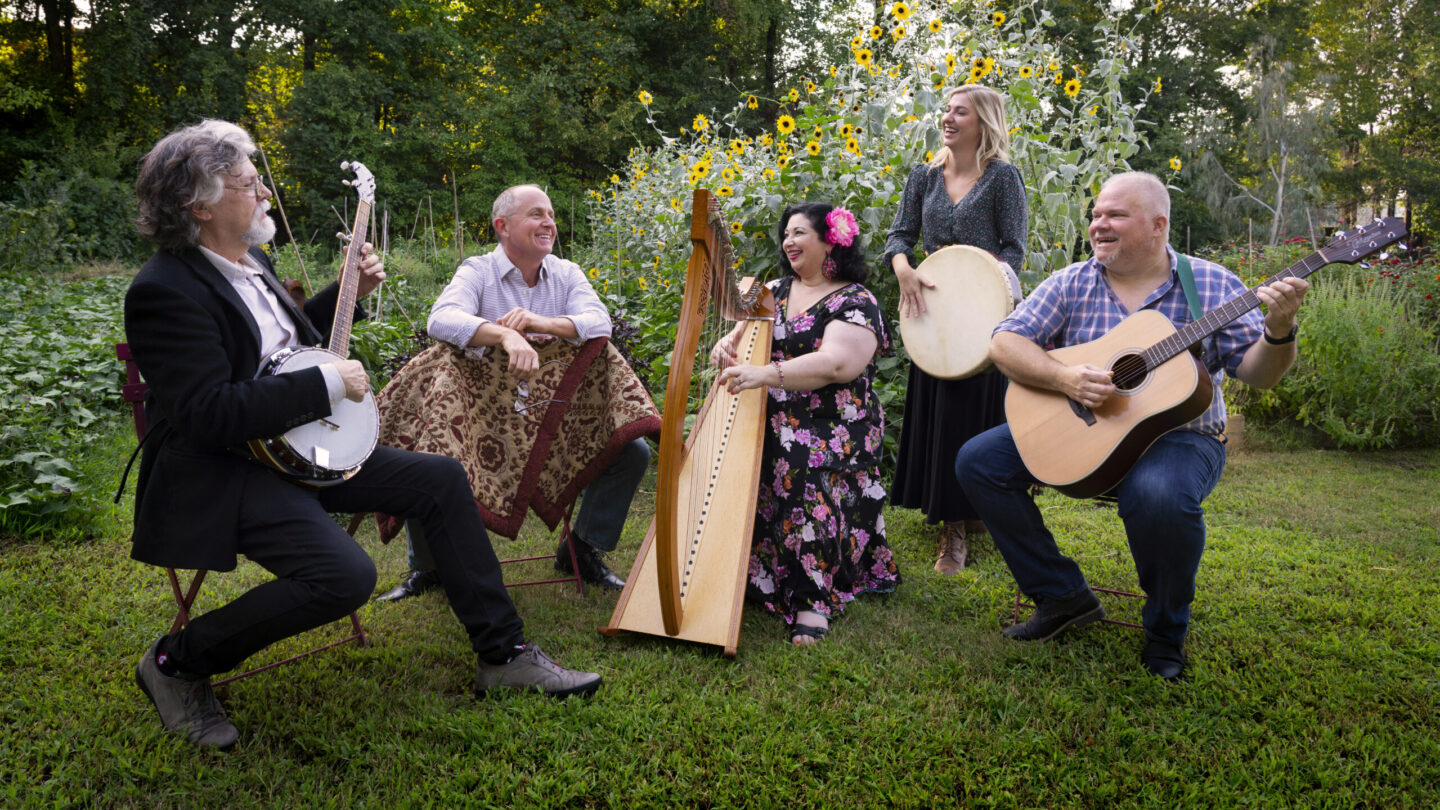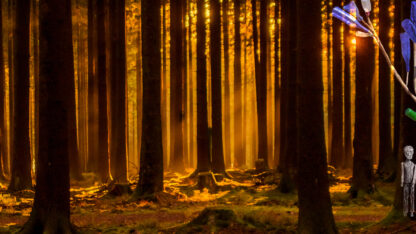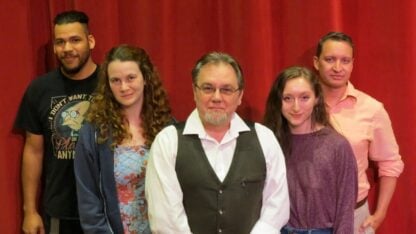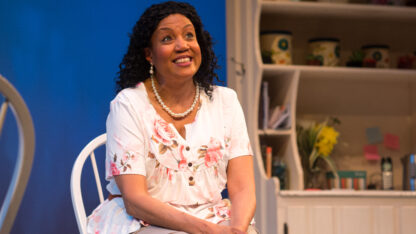A traditional Irish wake toast goes, “May your heart be light and happy, may your smile be big and wide and may your pockets always have a coin or two inside.” Irish wakes and funerals are often celebrations of a person’s life. Music, poetry and merriment are shared by friends and family, sometimes for days at a time. Playwright Vynnie Meli always wanted to go to an Irish wake, so she wrote one. “The Wake: A New Play with Old Irish Songs” will be performed at the Shakespeare Tavern starting Sunday evening, May 8. “City Lights” host Lois Reitzes was joined by Meli, co-creator, music director, composer Scott DePoy and director Mira Hirsch to talk about the show.
Interview highlights:
Vynnie Meli explains the traditional Irish wake:
“All these friends … and mourners are gathered together to see their old friend off,” said Meli. “In the old days, they would stay up all night, and that’s why they called it a wake … These would last for a day or more to make sure that the deceased didn’t wake.” She said, “So of course, with the drinking, that’s a good part of the Irish wake; and the food and the friendship. There’s a lot of banter, and some old wounds might be uncovered. They get a little punchdrunk as well, or what is it — ‘poitín,’ if you’re fancy.”
Audience participation encouraged:
“The setting is supposed to be set in the home of the deceased. However, it works really well in the setting where we’re going to be, which is in the Shakespeare Tavern,” said Meli. “The actors enter through the house and greet the audience as if they are the mourners as well, and they are asked to sometimes sing along, sometimes dance along. They’re even asked if they want to get up and speak about the deceased, though it might be interesting if one of them decides to actually do that.”
The Irish wake’s resonance with other mourning traditions:
“Working on this piece, I’ve realized some of the similarities, comparing a wake with a shiva; how they’re both a way for people to gather and to mourn the loss of this person, but also to celebrate the person’s life and tell stories about the person. That’s often encouraged at a shiva, and it’s also partially like a religious service and practice, but it’s also a very social gathering centered around food and drink,” said Hirsch.
“The tradition of covering the mirrors during a wake, that really got to me,” Hirsch added. “I had no idea; that’s so steeped in Jewish tradition is to cover all the mirrors during the period of mourning. And even the tradition of sitting with the body … Yeah, there were so many things, and just the overall sensibility of the laughter through tears.”
On the universally moving music of the Irish tradition:
“I really, really love minor keys, but I also think that Irish music, Celtic music, strikes a chord in me, in my heart,” said DePoy. “My nationalities are French and Danish, but Celtic music has always struck a real chord somewhere deep inside of me. And I think it’s because of the sort of universality of their melodies. Somebody said that Irish music contained some of the most heartbreakingly beautiful melodies in Western music, and I really think that’s true. It comes from the heart. It speaks to the heart.”
“Also, I think of it as so joyful,” added Meli. “I have to be happy when I’m listening to Irish music, especially when you all bring out the instruments, the bodhran and dulcimer, and tin whistle and harp. And it may be heartbreaking, but happy too.”
“The Wake: A New Play with Old Irish Songs” takes place at Atlanta’s Shakespeare Tavern on Sunday evenings from May 8-22. Tickets and more information are available here.









